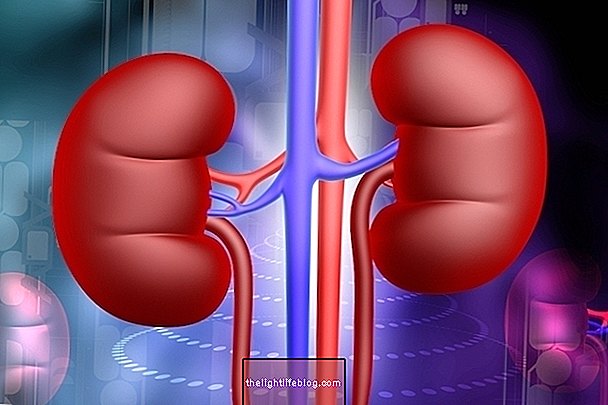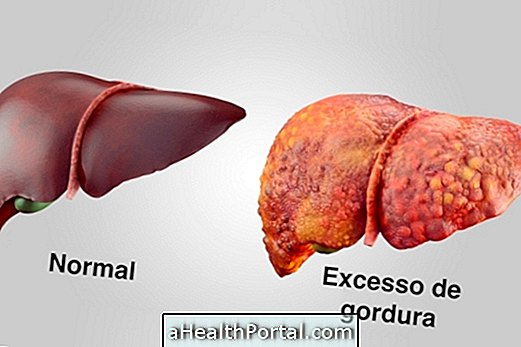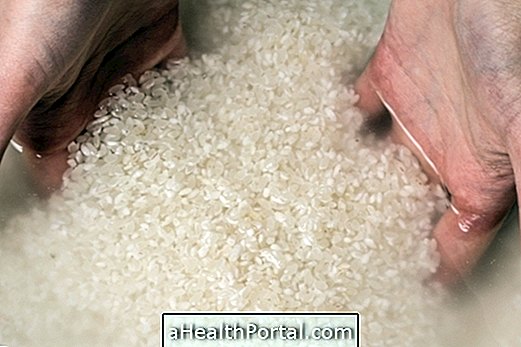Vesicoureteral reflux is an alteration of the urinary system that causes the urine that reaches the bladder to return to the ureter, which is the channel that carries urine from the kidney to the bladder, which increases the risk of developing urinary infections.
This alteration is mainly identified in children who have very frequent urinary infections, and is generally considered to be a congenital alteration, that is to say, that appears since birth.
After confirming the diagnosis of vesicoureteral reflux, it is important to start treatment, which is usually done with antibiotics or surgery, depending on the degree of the change.

Main symptoms
Vesicoureteral reflux is usually only identified through exams, however, it is common for people who have this disorder to have very frequent urinary infections, with symptoms such as:
- Willingness to urinate all the time;
- Burning or pain when urinating;
- Feeling of heaviness in the bladder;
- Urinate with a small amount.
When these symptoms appear very recurrently, the doctor may order a radiography of the bladder and urethra, which is called urinary cystethography, to see if there is vesicoureteral reflux.
Why it happens
Vesicoureteral reflux happens in most cases due to a failure in the mechanism that prevents urine from returning after reaching the bladder, which happens during the child's development during pregnancy and, therefore, is considered a congenital alteration.
However, this situation can also be due to genetics, malfunction of the bladder or obstruction of urinary flow.
Degrees of vesicoureteral reflux
According to the characteristics observed in the exam and the symptoms presented, the doctor can classify vesicoureteral reflux in degrees, being:
- Grade I: urine returns only to the ureter and, therefore, is considered the lightest grade;
- Grade II: urine returns to the kidney;
- Grade III: urine returns to the kidney and dilation is seen in the organ;
- Grade IV: there is a greater return of urine to the kidney and dilation of the organ, and signs of loss of function can still be seen;
- Grade V: return of urine to the kidney that results in great dilation and alteration in the ureter, being considered the most severe degree of vesicoureteral reflux.
Depending on the degree of reflux, signs and symptoms presented and the person's age, the doctor is able to indicate the best type of treatment.
How the treatment is done
Treatment for vesicoureteral reflux should be done according to the recommendation of the urologist or pediatrician and may vary according to the degree of reflux. Thus, in grade I to III refluxes, the use of antibiotics is common, as it is possible to reduce the symptoms related to bacterial infection, promoting symptom relief. Especially because when it occurs in children under 5 years old, spontaneous healing is frequent.
However, in the case of grade IV and V refluxes, surgery is usually recommended in order to improve the functioning of the kidney and decrease the return of urine. In addition, surgical treatment can also be indicated for people who have not responded well to antibiotic treatment or who continue to have recurrent urinary infections.
It is also important that all people diagnosed with vesicoureteral reflux are monitored regularly by the doctor, as it is thus possible to monitor kidney function, promoting its proper functioning.
Was this information helpful?
Yes No
Your opinion is important! Write here how we can improve our text:
Any questions? Click here to be answered.
Email in which you want to receive a reply:
Check the confirmation email we sent you.
Your name:
Reason for visit:
--- Choose your reason --- DiseaseLive betterHelp another personGain knowledge
Are you a health professional?
NoMedicalPharmaceuticalsNurseNutritionistBiomedicalPhysiotherapistBeauticianOther
Bibliography
- TEIXEIRA, Camila B .; CANÇADO, Maria Aparecida P .; CARVALHAES, João Tomás A. Primary vesicoureteral reflux in childhood: conservative treatment versus surgical intervention. J Bras Nefrol. Vol 36. 1 ed; 10-17, 2014



















